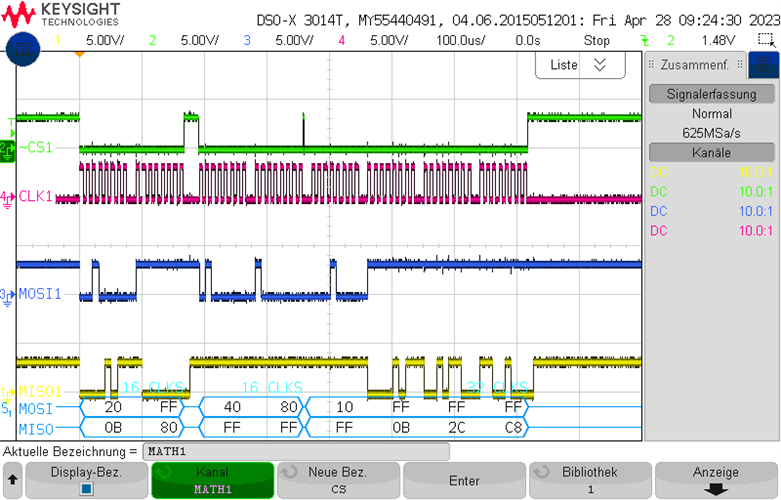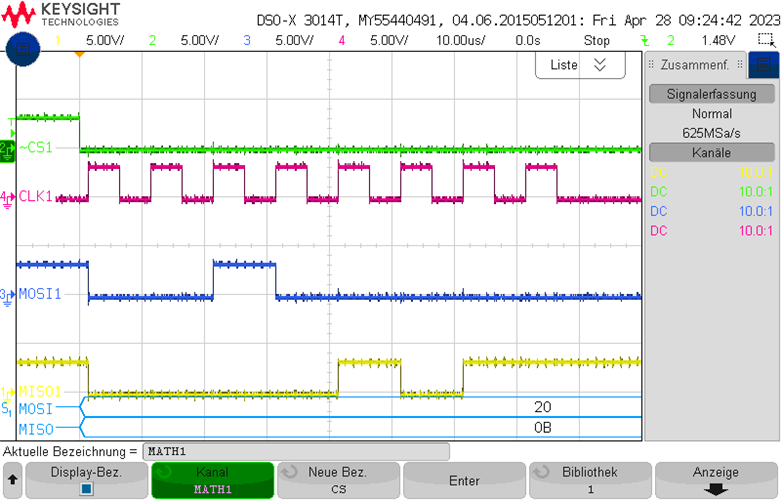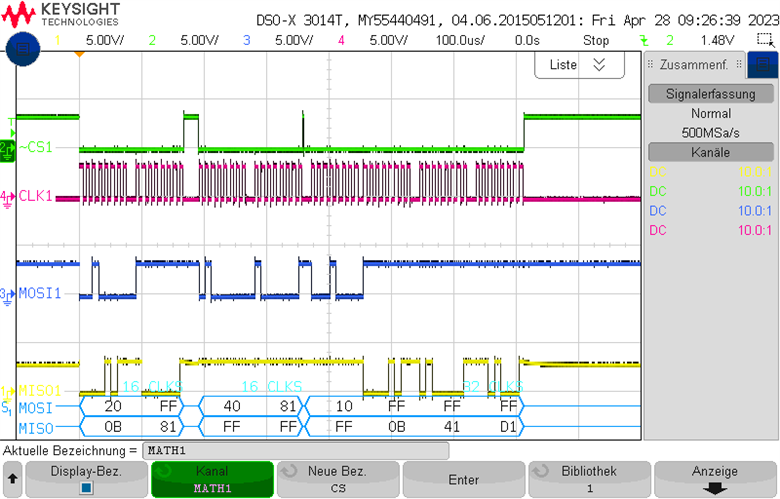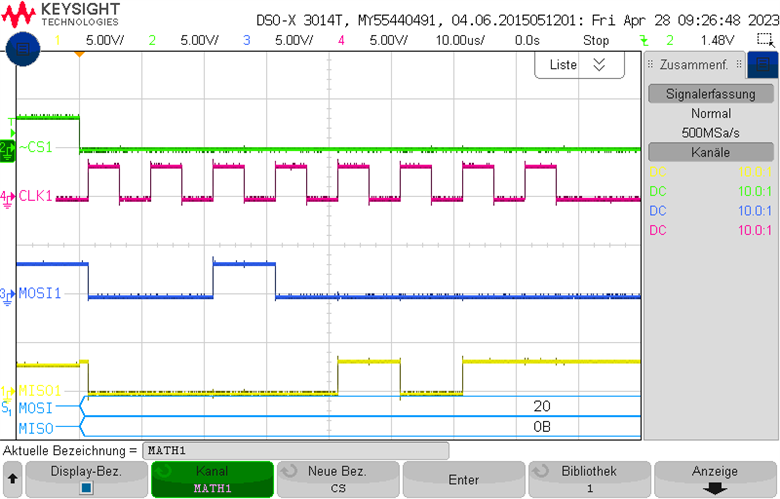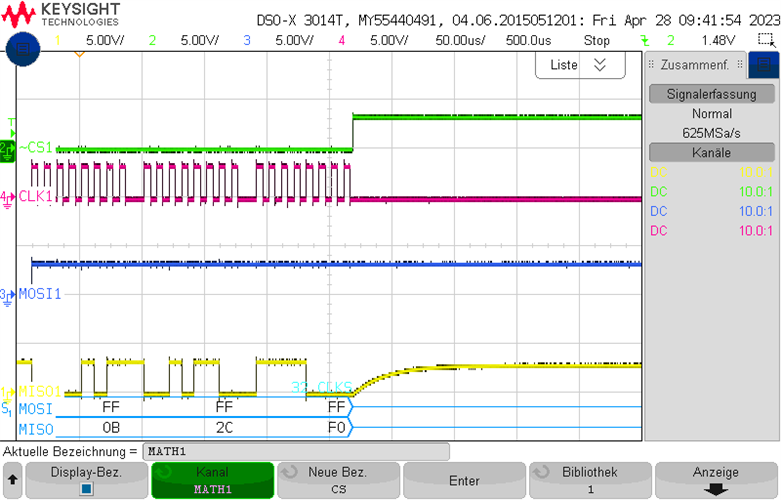Other Parts Discussed in Thread: ADS1220, ISO7241M, ISO6741
In our design, an MSP430 and an ADS1220 communicate via an SPI isolated by the ISO7241C. This all works without any problem.
Now we have changed from the ISO7241C to the ISO7241M due to availability. According to the datasheet, the ISO7241M is actually just faster and should work fine for our SPI communication with 100kHz CLK frequency. Unfortunately this is not the case. The communication runs for some seconds before the ADS1220 interprets wrong commands. The behavior of the ADS1220 is not predictable. Sometimes the gain is switched, the next time the sample mode is changed.
There are no other changes in the system.
Does anyone have any ideas?
Thanks
Stefan




